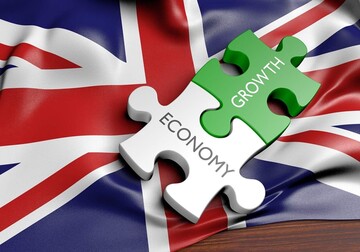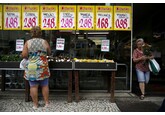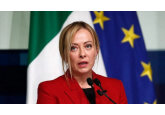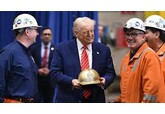
UK Economy Ekes Out Modest Growth as Factories Recover
The UK economy resumed modest growth in August as a rebound in manufacturing helped offset a stagnant month for the dominant services industry.
Gross domestic product rose 0.1% after falling 0.1% in July, the Office for National Statistics said Thursday. The increase was in line with the median forecast of economists surveyed by Bloomberg. Factory output grew a faster-than-expected 0.7%, while services were flat for a second straight month and construction shrank.
The pickup puts Britain on course for some growth in the third quarter, a modest boost for Chancellor of the Exchequer Rachel Reeves ahead of what’s expected to be a challenging budget on Nov. 26 with businesses and consumers braced for further tax increases. The economy will expand over the quarter unless GDP drops by 0.5% or more in September, the ONS said.
The figures may nevertheless do little to assuage concerns that the economy has reverted to a more pedestrian pace after outperforming every other Group of Seven country in the first half. Reeves needs growth to stabilize the public finances and deliver on election pledges to invest more in public services and lift living standards.
“Regaining momentum hinges on restoring business confidence and reducing uncertainty, which the government can support by setting aside a larger fiscal buffer in the upcoming Budget,” said Fergus Jimenez-England, associate economist at NIESR, a think tank.
Read more: Reeves Needs £50 Billion Buffer to End UK Tax Hikes, IFS Says
Economists at Deutsche Bank, HSBC and Pantheon Macroeconomics now estimate the economy expanded just 0.2% in the third quarter, about half the pace the Bank of England predicted last month.
That could strengthen the case for further interest-rate cuts, with the August report the last official growth estimate before policymakers make their next decision on Nov. 6. Officials have become deeply divided on when and whether to reduce borrowing costs as they balance growth risks against concerns about lingering price pressures.
The GDP figures end a week of dismal economic news for the chancellor.
On Tuesday, the International Monetary Fund predicted Britain will suffer the fastest inflation among major economies in the next two years. Hours earlier, Britain reported a surprise increase in unemployment, prompting Bank of England Governor Andrew Bailey to raise concerns that the economy is running under potential. External rate-setter Alan Taylor meanwhile warned that Britain was facing a rising risk of a hard landing.
While traders put the odds of a further interest-rate cut this year at less than 40%, they are fully pricing in a move by March and a further quarter-point reduction by the end of next year. UK government bonds rose for a fifth day on Thursday, while the pound was up 0.3% on the day at $1.3446.
The rise in manufacturing followed a fall of 1.1% in July, with output increasing in 8 of the 13 subsectors, the ONS said.
The largest contribution came from a 3% rise in the manufacture of basic pharmaceutical products and pharmaceutical preparations. There were also increases for machinery and equipment, metals and chemicals.
The services sector failed to grow once again despite a rise in retail sales during the month. There were falls in wholesale, entertainment and recreation and transport and storage. Growth came largely from rental and leasing activities, followed by health care. Consumer-facing services grew 0.1% in August following no growth in July.
Separate data showed imports of goods were flat in August, while exports fell with shipments to both European Union and non-EU countries declining. Exports to the US, including precious metals, fell by around £700 million, extending a volatile period since President Donald Trump launched his tariffs war in April.
bloomberg







